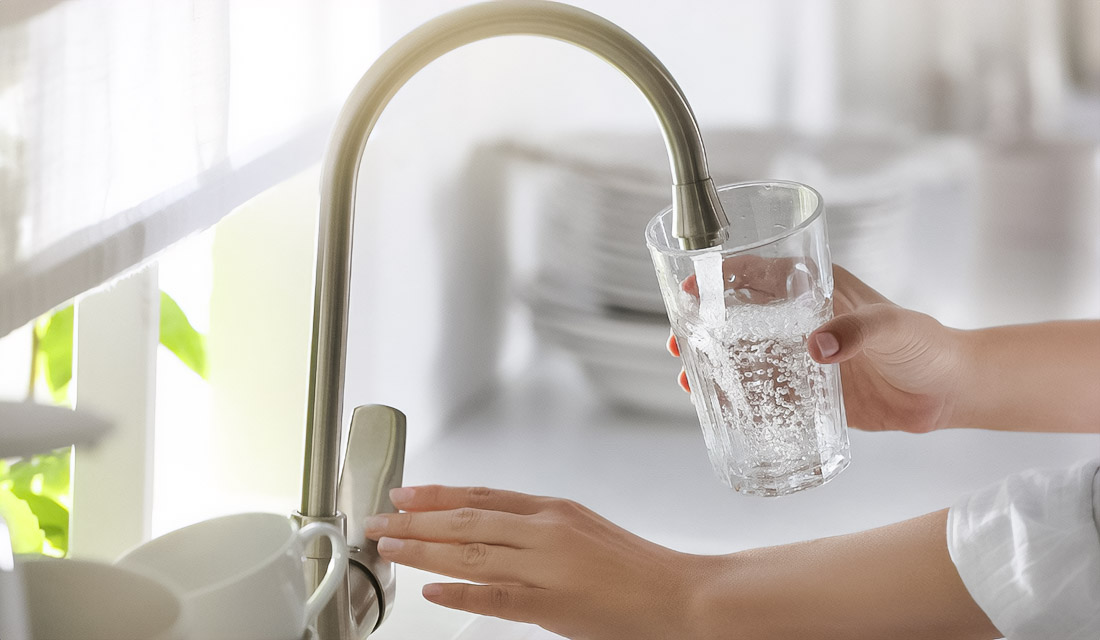In Saudi Arabia, the intense climate and chronic shortage of freshwater mean proper hydration is an urgent need. As a result, purchasing bottled water in bulk is a deeply ingrained practice. In 2024, the market reached an estimated 2.6 billion US dollars, almost 9.75 billion Saudi riyals. According to forecasts, by 2033 the amount will grow to 20.25 billion riyals, with an average annual increase of about 8.1%. Rapid population growth, dense urbanization and increased attention to the safety of drinking water are pushing families to purchase bottles more actively. But this convenience hides significant costs and a serious impact on the environment.
Few people think about how much the habit of buying bottled water costs in the end. It is estimated that a liter of bottled water can cost up to 1.9 riyals, and one gallon sometimes goes up to 15 riyals. For comparison, a liter of ordinary tap water costs about 0.0075 riyals. The cost difference is astounding: people overpay thousands of times just for packaging and shipping. With a daily consumption of just one liter per year, the amount is over 1,400 riyals for an average family of four. At the same time, it is far from a fact that bottled water is really cleaner. During independent laboratory tests, traces of industrial chemicals, bacteria and microplastics were found in the samples. On average, there were more than 200,000 microparticles of plastic per liter.
Tap water filtration system is becoming an increasingly popular and reasonable alternative. More and more houses in Saudi Arabia are equipped with reverse osmosis systems or multi-stage filters for washing. In such systems, the membrane filters out particles down to 0.0001 microns, removing heavy metals, bacteria, viruses, and dissolved salts. Activated charcoal is used to get rid of chlorine’s taste and smell. This setup not only clears the water of pesticides and pollutants but also improves its flavor.
The financial effect is noticeable almost immediately. A family of four drinking 1.5 liters per person per day will use around 2,200 liters each year. Given the average price of 1.9 riyals per liter, this translates to over 4,000 riyals annually. For reference, installing a reverse osmosis system with cartridges costs between 750 and 1,100 riyals in the first year. In the following years, it is enough to change the cartridges for about 375-560 riyals. Thus, savings can amount to 3,000 riyals or more each year.
At the same time, the benefits of filtering are not limited only to reducing costs. The chlorine contained in the water dries the skin and hair, causing itching and irritation. In areas with hard water, where there is a lot of calcium and magnesium, plaque appears on plumbing. Such water spoils household appliances and worsens the condition of the skin. By installing a water filter, you can avoid these problems and extend the service life of the equipment. Filtration is especially important for children and pregnant women: nitrates and heavy metals have a much stronger effect on the body during development.
In addition, filtration reduces the burden on the environment. The production of plastic bottles requires huge energy consumption. Experts estimate that the energy required to produce one liter of bottled water is about 2,000 times more than to purify tap water. At the same time, out of 5 billion plastic bottles discarded per year, less than 5% are recycled. The rest ends up in landfills and in the ocean. One filtration system is capable of replacing more than a thousand disposable bottles over its lifetime, which significantly reduces waste.
Filtration is more convenient than regular package delivery. Filters for washing and filter bottles allow you to get clean water at any time, without unnecessary fuss with plastic storage and recycling. This is especially true for large families.
Using filtering allows you to:
- Reduce water costs by up to 80-90%.
- Remove microplastics, bacteria and heavy metals.
- Improve the taste and remove the smell of chlorine.
- Prevent the formation of limescale.
- Reduce carbon dioxide emissions and plastic waste.
With limited fresh water supplies and increasing water stress, switching to filtration is no longer just a matter of saving money. This is a conscious decision in favor of family health and environmental protection. Clean water is not a luxury, but a basic need and an important investment in the peace and well-being of your home.

Surfer, hustler, hiphop head, reclaimed wood collector and recent OCAD grad. Acting at the intersection of design and programing to give life to your brand. Check me out on Dribbble or Medium.
